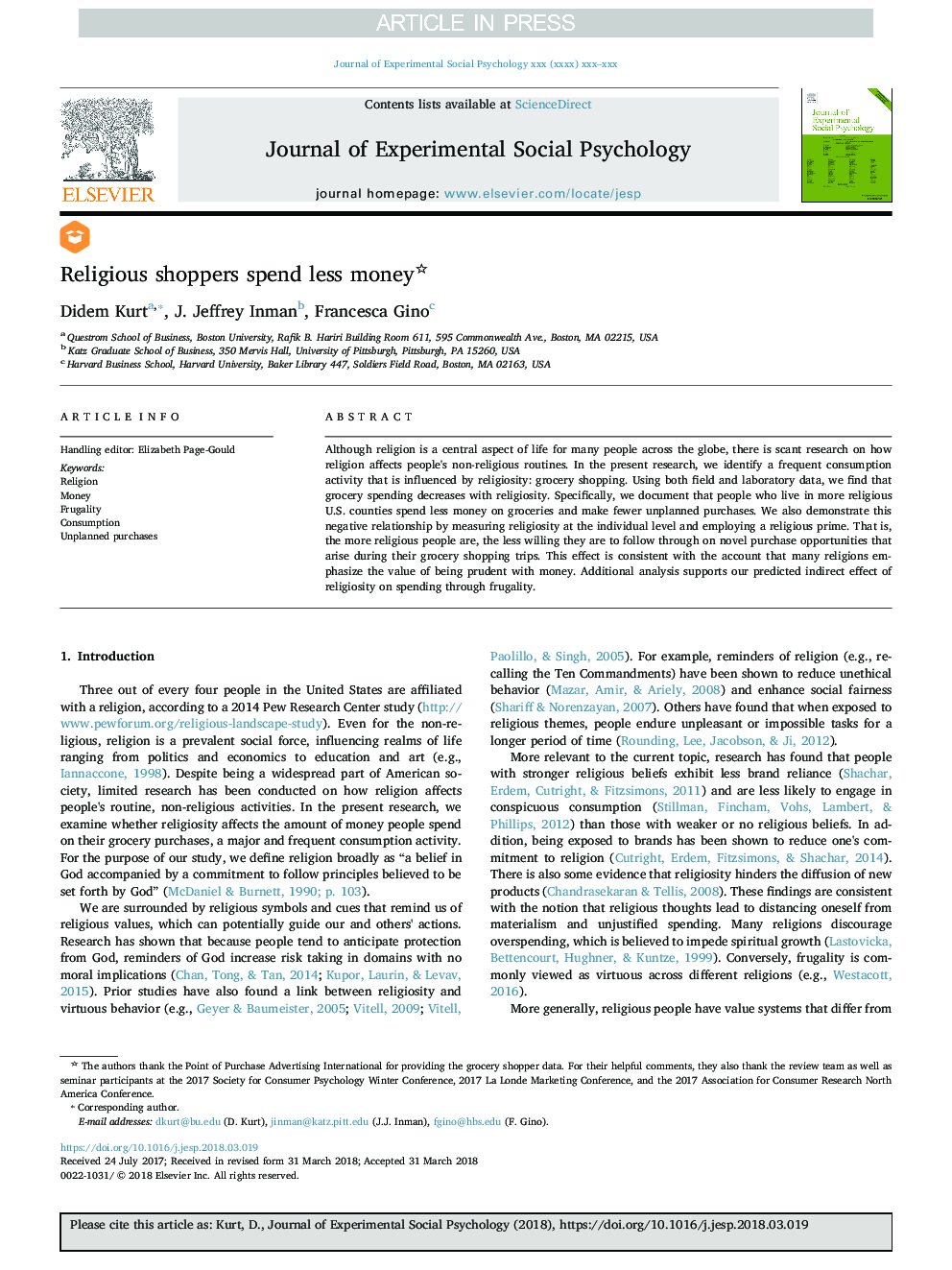| Article ID | Journal | Published Year | Pages | File Type |
|---|---|---|---|---|
| 7323972 | Journal of Experimental Social Psychology | 2018 | 9 Pages |
Abstract
Although religion is a central aspect of life for many people across the globe, there is scant research on how religion affects people's non-religious routines. In the present research, we identify a frequent consumption activity that is influenced by religiosity: grocery shopping. Using both field and laboratory data, we find that grocery spending decreases with religiosity. Specifically, we document that people who live in more religious U.S. counties spend less money on groceries and make fewer unplanned purchases. We also demonstrate this negative relationship by measuring religiosity at the individual level and employing a religious prime. That is, the more religious people are, the less willing they are to follow through on novel purchase opportunities that arise during their grocery shopping trips. This effect is consistent with the account that many religions emphasize the value of being prudent with money. Additional analysis supports our predicted indirect effect of religiosity on spending through frugality.
Keywords
Related Topics
Life Sciences
Neuroscience
Behavioral Neuroscience
Authors
Didem Kurt, J. Jeffrey Inman, Francesca Gino,
